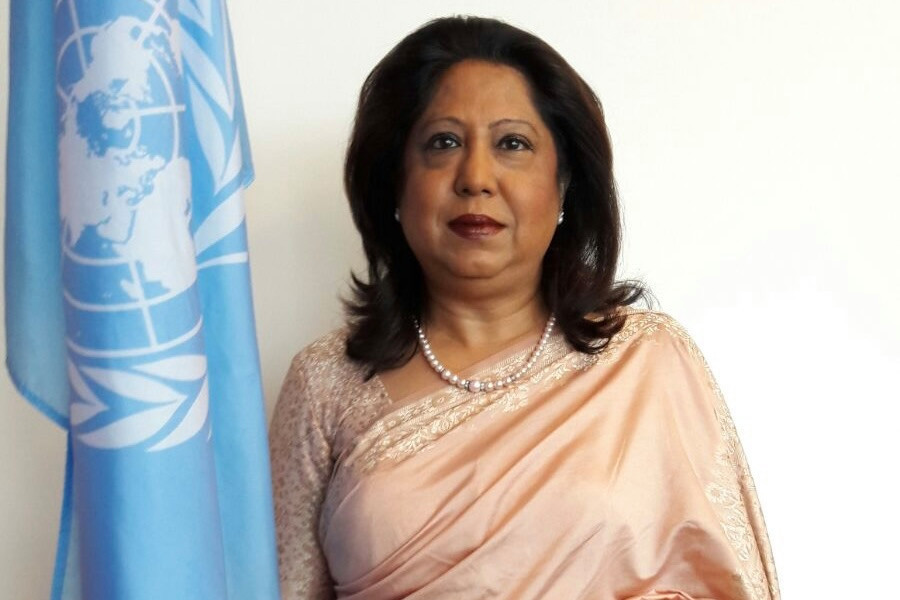In May, Pramila Patten signed in Kyiv a framework for cooperation with the Ukrainian government on the prevention and response to conflict-related sexual violence.
Just days into Russia’s invasion of Ukraine, reports surfaced on “how sexual violence is being used, clearly as a tactic of war, to dehumanise, to destabilise the enemy,” she said.
Patten, whose mandate was only created in 2009, has previously said that “an active battleground is never conducive to accurate ‘bookkeeping’.” Ukraine is no exception. Whatever data available is “only the tip of the iceberg”--with an active battlefield, there’s a breakdown of normal services and support pathways. Compounding this is the stigma associated with sexual violence, which varies from culture to culture. “I met the mother of a victim who told me that her daughter was raped in front of her. It’s out of shame that [the daughter] just left, and the mother doesn’t know where she is.”
Moreover, “within this humanitarian crisis, you have a human trafficking crisis, which is invisible.” Her office is therefore working with the EU, OSCE and others in a bid to create a compact for refugee-receiving countries to address this issue.
The grand duchess is really helping survivors to challenge the shame, the isolation, the abandonment and the untreated trauma which normally would shatter their lives
Although more needs to be done in this area, there has also been some progress. For example, under the UN Convention on the Rights of the Child and Convention on the Elimination of All Forms of Discrimination Against Women, work is being done for governments to recognise rights of children born as a result of sexual violence, who are often stigmatised or abandoned altogether. And one month ago, Guinean ex-dictator Moussa Dadis Camara and others were sent to prison following the 28 September 2009 massacre in Conakry stadium, during which at least 109 women and girls were raped.
Read also
Patten praises Grand Duchess Maria Teresa and her Stand Speak Rise Up! initiative to create a global platform to raise awareness on the topic. The 2019 event was “no ordinary conference”, as it put survivors centre stage. “[Grand Duchess Maria Teresa] has refused to shy away from the harsh reality of women’s bodies being used as part of the battlefield,” Patten added. “She’s really helping survivors to challenge the shame, the isolation, the abandonment and the untreated trauma which normally would shatter their lives.”
This article first appeared in the .

